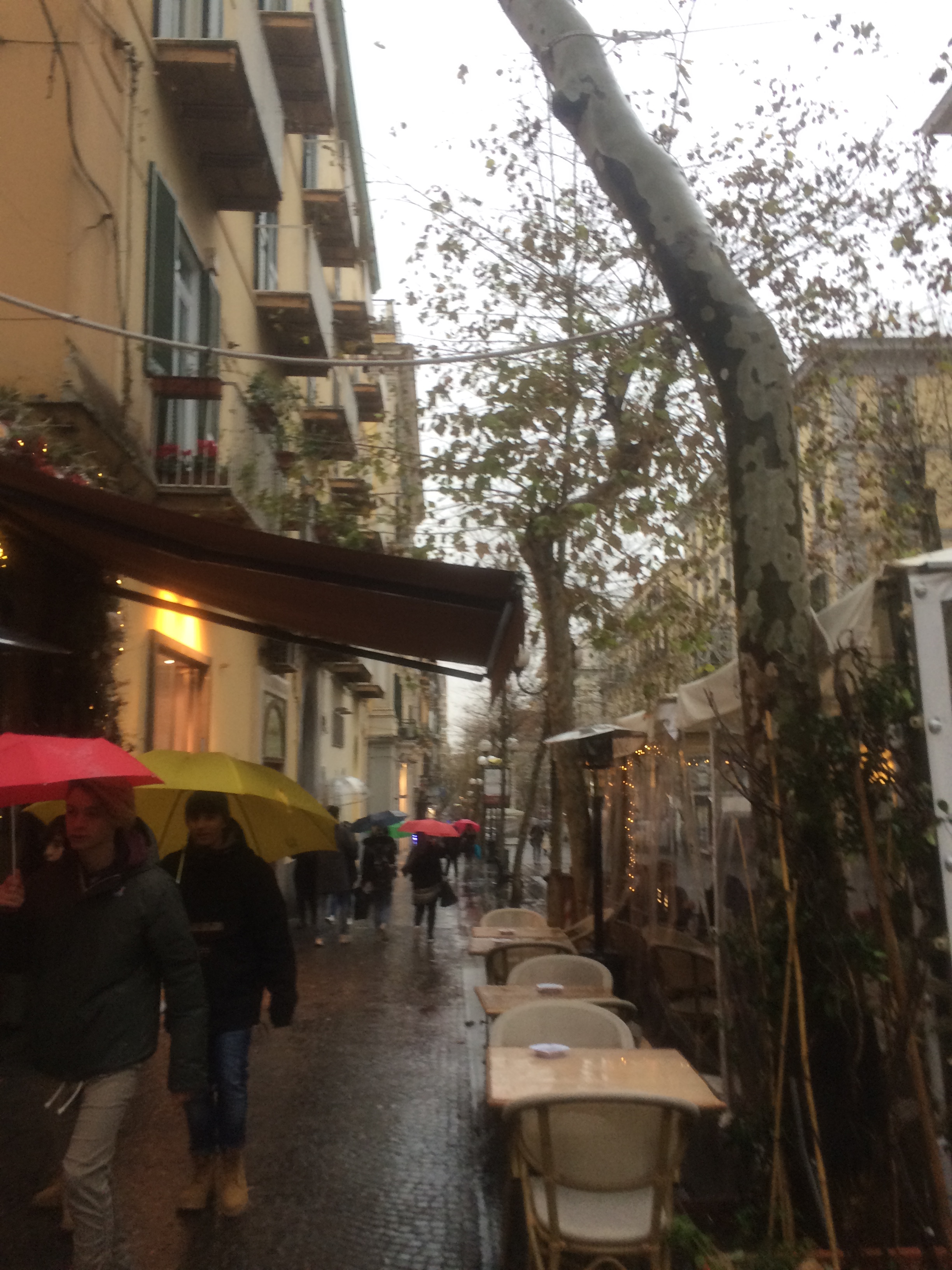Pasta e Fagioli (Pasta and Beans)
“São as águas de março fechando o verão
É a promessa de vida no teu coração”
Nearly a lifetime ago, I lived in Sao Paulo. It is a city so diametrically opposed to Napoli that I am often confused by how a decadent street corner, an oddly chortling neighbor or an encounter with a puckish butcher in Naples will strangely transport me back to my former life in Sao Paulo.
Napoli, steeped in old world traditions that span over 3,000 years, has experienced Greek, Roman, Norman, Bourbon and German rule. Sao Paulo, a mere babe at barely 460 years old, experienced Portuguese occupation/rule, a slave trade, a monarchy and finally republicanism.
With similar histories of occupation and oppression, Neapolitans and Paulistanos boast unlikely bravado in the face of adversity. They also share an unmistakably lyrical sense of humor when the world goes to pot.
Nowhere is this similarity more present than in the musical traditions of each city. Perhaps the most famous testament to the fortitude of Paulistanos is the Gaetano Veloso song, Sampa. Like many migrants arriving in Sao Paulo from the economically depressed North East Brazil, Veloso’s first impressions of Sao Paulo were harsh but endearing.
Poesia Concreta-- Neapolitan style
He croons about the city’s concrete corners and inelegant women, and that little something that happened in his heart every time he crossed the iconic intersection of Ipiranga and Sao Joao streets in the center in Sao Paulo. Song in Sao Paulo is simply a way to pass the time, pass the pain and perhaps commit to memory the stories of the illiterate.
Naples is really no different. As with Sao Paulo, Napoli is a musical city. Accordions, whistles, harmonicas and plaintive baritone voices skitter across town at all hours. Old men selling strawberries may burst into song because the incessant monotony of shouting fruit prices becomes too much to bear. As far as rhythm goes, in Naples, we have the tarantella. In Sao Paulo, the batucada. The beats may differ. The sentiment is the same.
After my years living in and around Napoli, I no longer can say that I speak Portuguese as I once did. Neapolitan dialect and Italian have seeped into the language producing parts of my brain to all but replace a language I once spoke with passionate fluency. Occasionally, when I fail to recall a word in Italian, it may inexplicably tumble forth in Portuguese.
I arrived in Naples speaking no Italian. Somehow I communicated with Neapolitans in Portuguese. They responded in dialect and without grasping how or why, I understood.
Gradually, as I struggled to assimilate in my adopted town of Napule, my Portuguese faded away. I had no opportunity to mourn her passage--- it just happened. Each day a new word in Italian replaced an old word in Portuguese until finally I discovered, much to my dismay that I no longer could speak a language I once loved.
For reasons that I am sure a qualified neurologist would be able to quickly explain, the decline of my Portuguese speaking abilities never touched my singing abilities. On Monday, as it poured rain across Naples and all the housewives predictably complained about marzo being pazzo and how were they going to dry all of their clothing in this rain, I recalled the old Tom Jobim song, Águas de Março.
Without realizing it, I was humming, singing and then practically screaming this delightfully rhythmic ode to the end of summer in Brazil and the promise of new life to come. March was going crazy and Tom Jobim understood perfectly the somnolence and chaos that paradoxically descend upon Naples in marzo. For a moment, I felt that familiar Brazilian pang of saudade. I yearned for the language I once spoke, the food I once ate and the town I once loved.
I wanted a caipirinha and feijoada and Ipiranga and Sao Joao. But then again, I was in Napoli. I had Aglianico and ragù and all of these crazy people running around town fretting about laundry, public transport strikes and the upcoming soccer match against Real Madrid.
I continued singing Águas de Março. If I couldn’t have feijoada than I would make pasta fasule. My Paulistano past and my Napolitano present didn’t seem so dissonant after all.
Pasta e Fagioli (Pasta with Beans)
Serves 8 as primo
Ingredients
1 cup dried borlotti beans soaked overnight, drained and rinsed
2 tablespoon extra virgin olive oil
¼ cup diced pancetta (optional)
1 medium yellow onion, finely chopped
1 rib celery, finely chopped
1 carrot, peeled and finely chopped
1 clove garlic, slightly smashed
1/2 teaspoon red pepper flakes
2 teaspoons dried oregano
1 tablespoon tomato paste
Salt
Ground black pepper
2 cups ditalini pasta
Fresh parsley (optional garnish)
Instructions
Soak beans at least 8 hours, drain and rinse
Place beans in large, heavy bottomed stockpot and cover with AMPLE water---- if you add cold water to the beans during the cooking process the will never properly cook (This is the one only truly useful piece of advice I ever received from my mother-in-law, well that and always hang dry your under panties, but I digress)
Bring beans to a boil and reduce to a simmer
Cook for two hours until beans are tender
Remove beans from heat and reserve in cooking liquid (this can be done in bulk and in advance--- never throw out the bean cooking liquid as it is nutritional gold/delicious)
Heat olive in wide, heavy bottomed sauté pan over medium
Add pancetta, onion, carrot and celery and sauté for about five minutes until pancetta browned and vegetables softened
Add garlic clove, pepper flakes and oregano and sauté for one minute until garlic releases aroma
Remove garlic clove, add tomato paste and ¼ cup water and cook, occasionally stirring, for two minutes
Pass half of the beans through a food mill and add to the soffritto
Add remaining beans and cooking liquid, salt and pepper
Reduce heat and simmer for 30 minutes
While bean mixture is cooking, bring a large pot of salted water to a boil
Add pasta and cook until al dente (about 8 minutes)
Drain pasta and add to beans
Cook and stir with wooden spoon to coat pasta with beans and liquid
Ladle into shallow bowls, garnish with fresh parsley or oregano and serve immediately
*One final note--- A lot of non-Italians add cheese to pasta and beans. One would never do this in Napoli. The cheese distracts from the rich flavor of simmered beans. To each his own, but I recommend you save the formaggio for another day.









